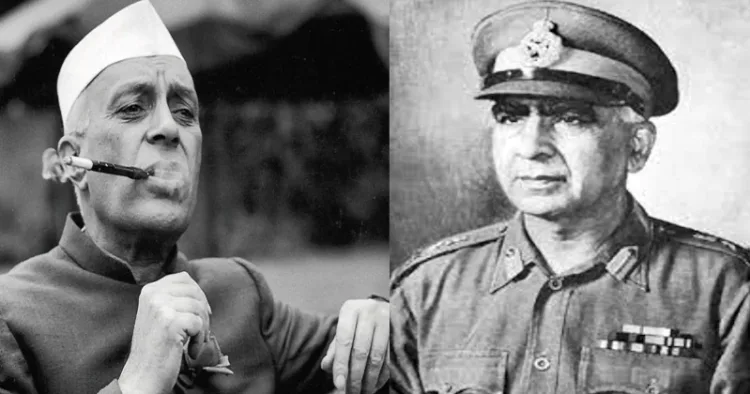The 1961 appointment of General Pran Nath Thapar as Chief of the Army Staff remains a topic of historical scrutiny and debate. General Thapar, father of journalist Karan Thapar and uncle of historian Romila Thapar, was appointed by Prime Minister Jawaharlal Nehru, allegedly due to his trusted relationship with Nehru rather than his strategic experience.
Born in 1906 in Jhelum, now part of Pakistan, Pran Nath Thapar’s illustrious military career began with his education at the prestigious Daly College and the Indian Military Academy. He served with distinction in World War II, commanding the 4th Indian Infantry Division in Burma. His contributions to the Indian Army included modernising its structure and establishing the National Defence Academy in Khadakwasla, Pune, which has since become a cornerstone for training future military leaders.
Despite his notable service record, Thapar’s appointment as Army Chief was controversial. Legendary General K.M. Cariappa, who favoured General Thorat for the position, argued that Thorat’s experience with the China border and his advocacy for deploying the army in forward positions made him a more suitable candidate. However, Nehru overruled Cariappa, reportedly due to their familial connection, favouring Thapar.
Thapar’s tenure as Army Chief coincided with the 1962 Sino-Indian War, which exposed significant strategic and tactical shortcomings in India’s military preparedness. Thapar, who had little experience with the China border, faced severe criticism for handling the conflict. Under his command, India lost approximately 40,000 square kilometres of territory to China. The war resulted in the deaths of thousands of Indian soldiers, a tragedy that left an indelible mark on India’s military history.
Following the debacle, Thapar offered his resignation, which was perceived by many as a token gesture. Nehru swiftly appointed him as an ambassador, allowing Thapar to retire abroad. This move sparked outrage among many who believed he should have been held accountable for the military failures. In Parliament, Nehru defended the loss of territory to China, a stance that further fueled public discontent.
General Thorat, who Thapar superseded, retired from service, marking an end to a potential leadership that many believe could have altered the course of the conflict with China. The decision to appoint Thapar over Thorat remains a contentious chapter in India’s military history, illustrating the complexities and consequences of political influence in military appointments.
General Pran Nath Thapar’s career, characterised by both commendable contributions and significant controversies, continues to spark discussion. His appointment as Army Chief and the subsequent 1962 Sino-Indian War underscore the intricate interplay between political decisions and military strategy, a dynamic that remains relevant and thought-provoking.




















Comments